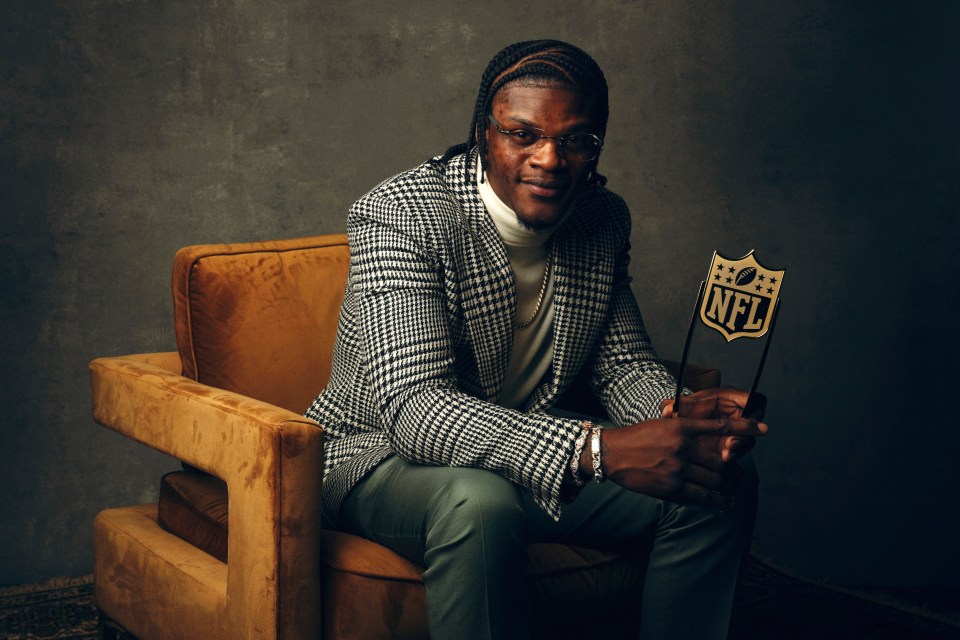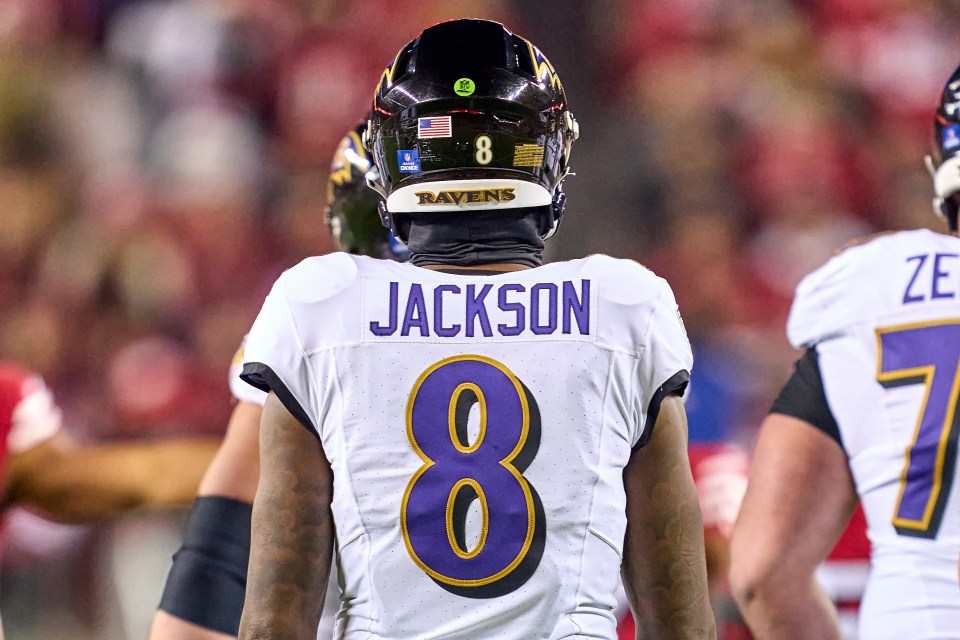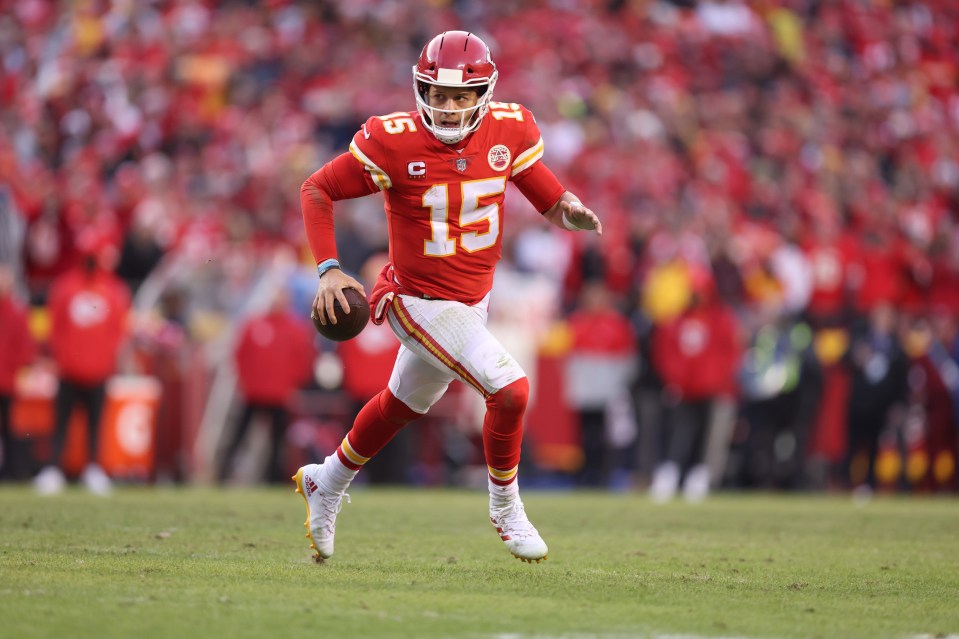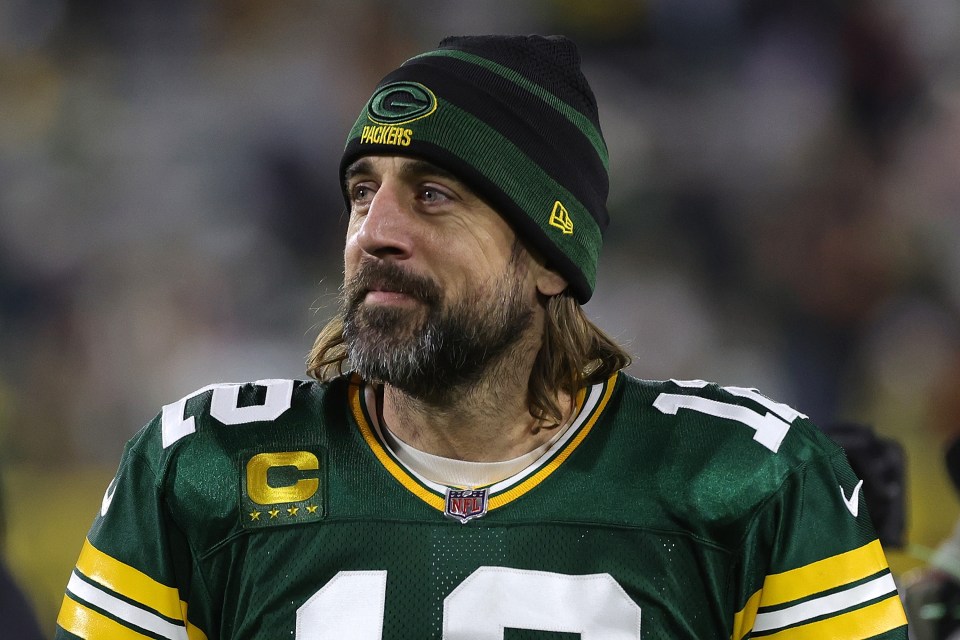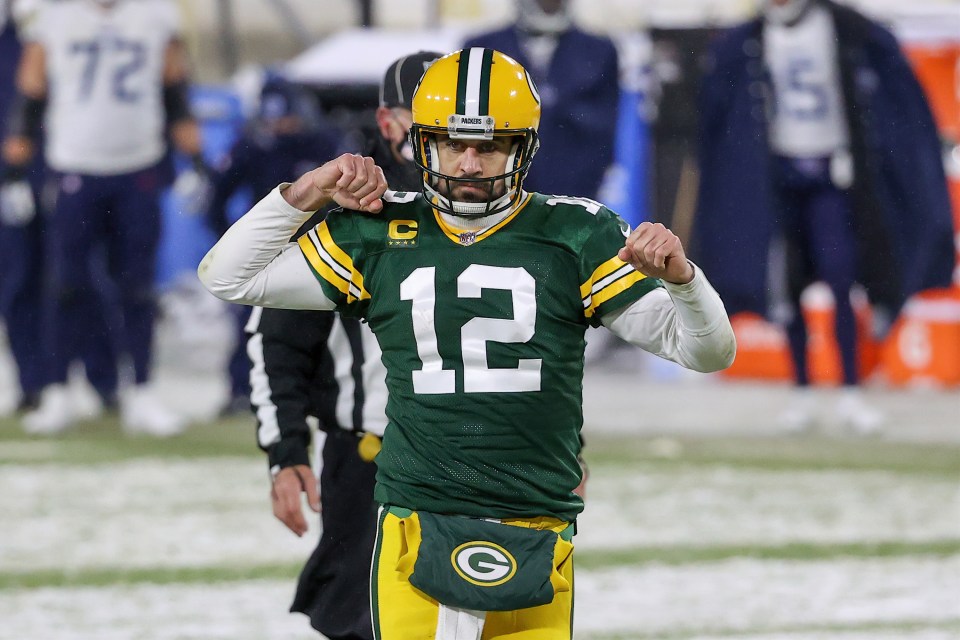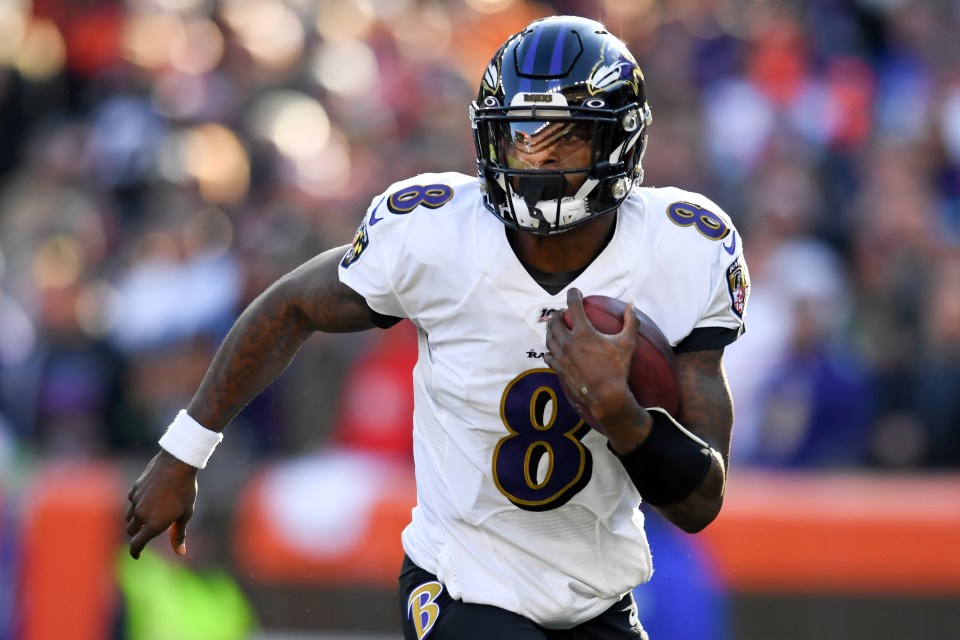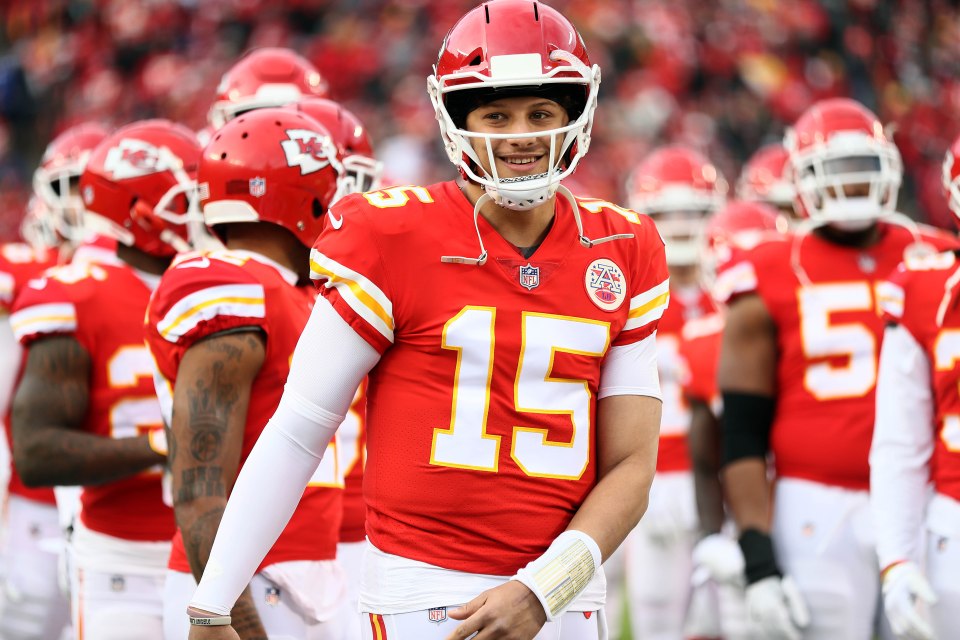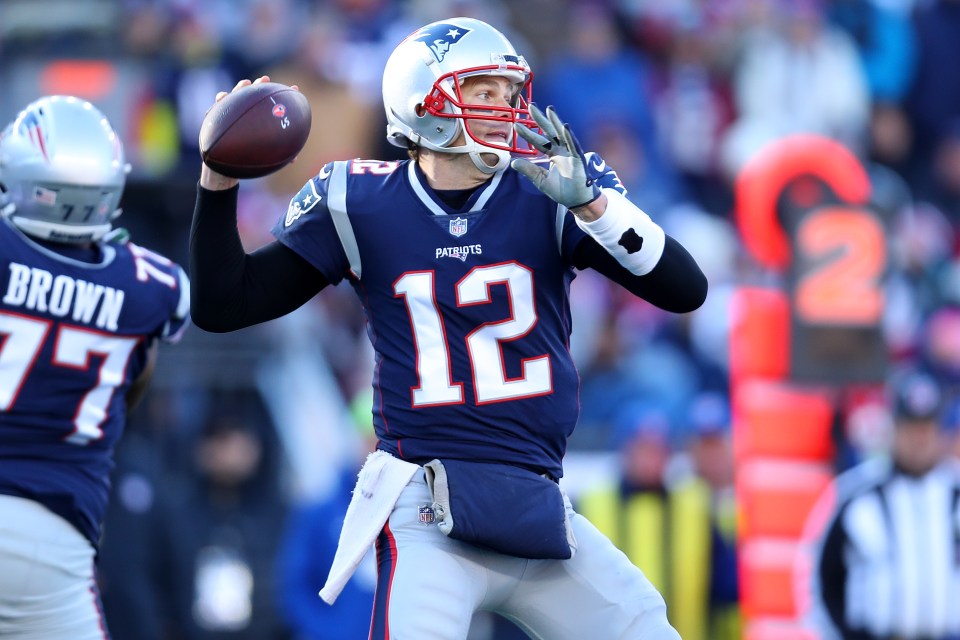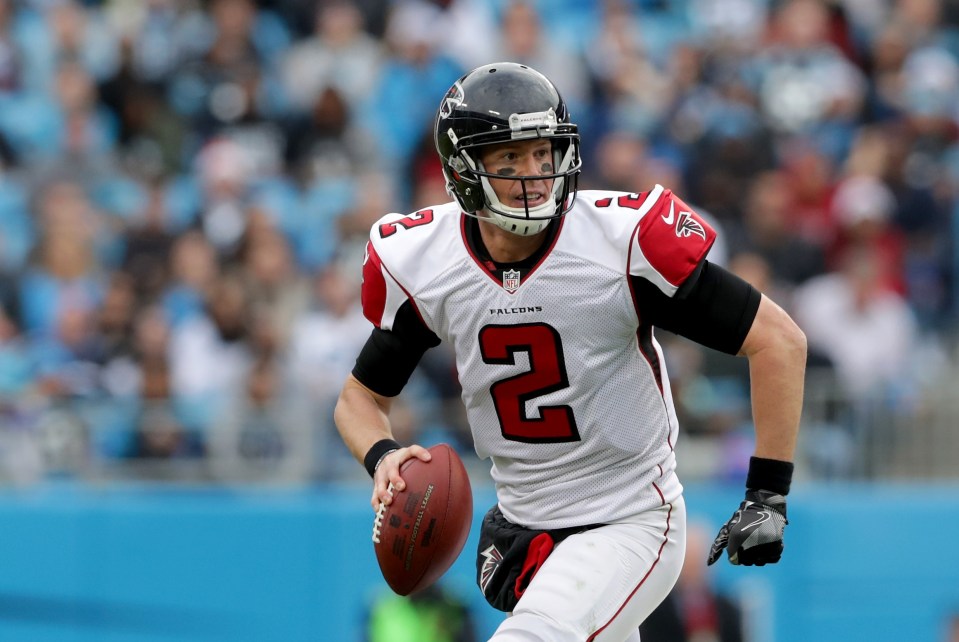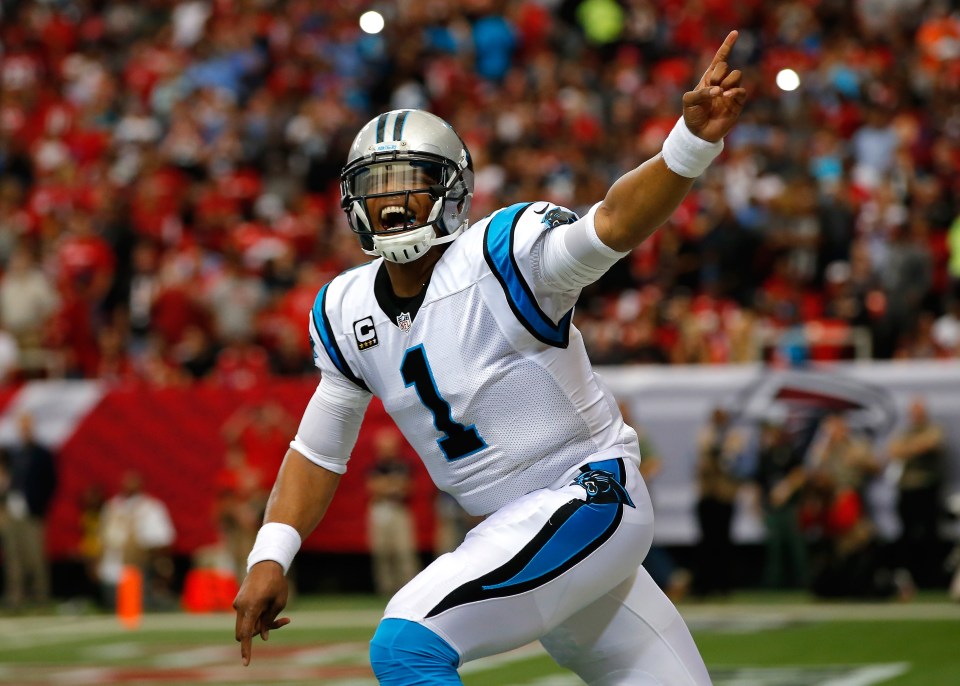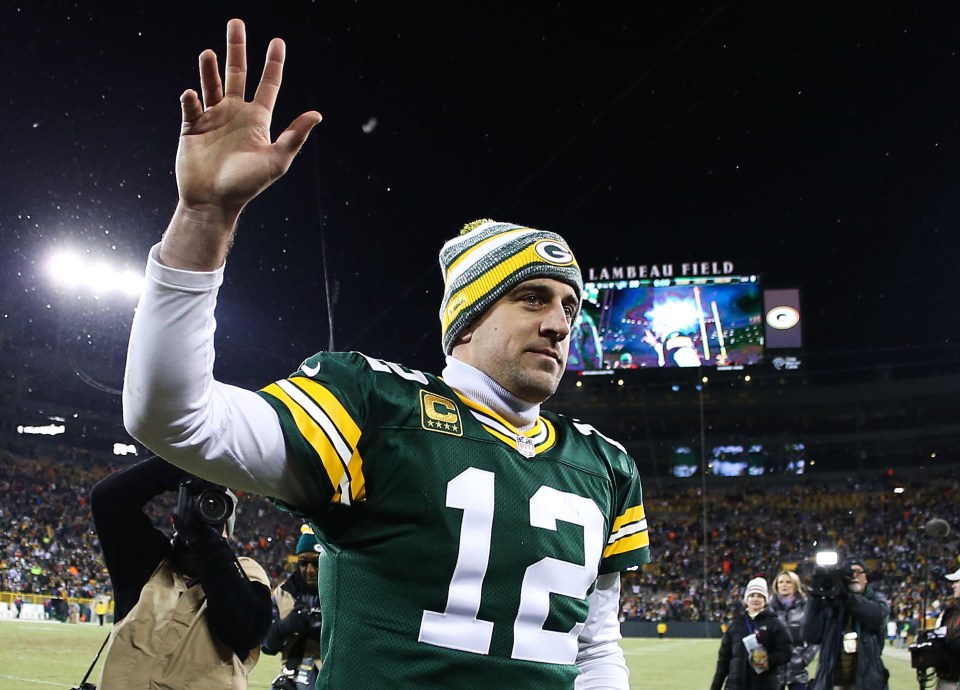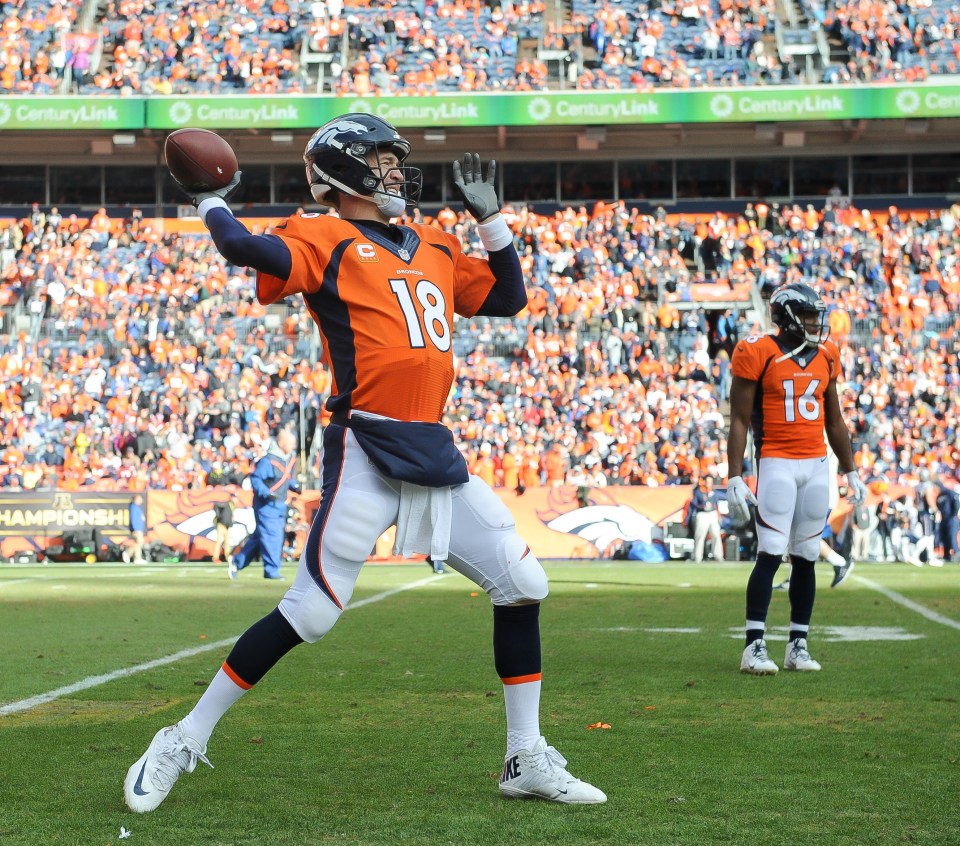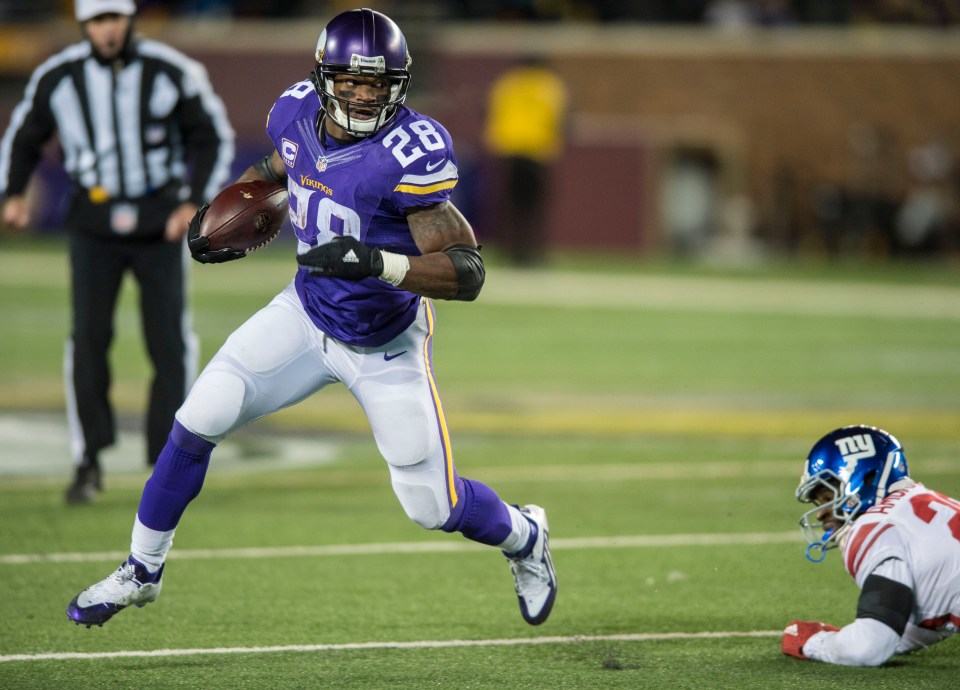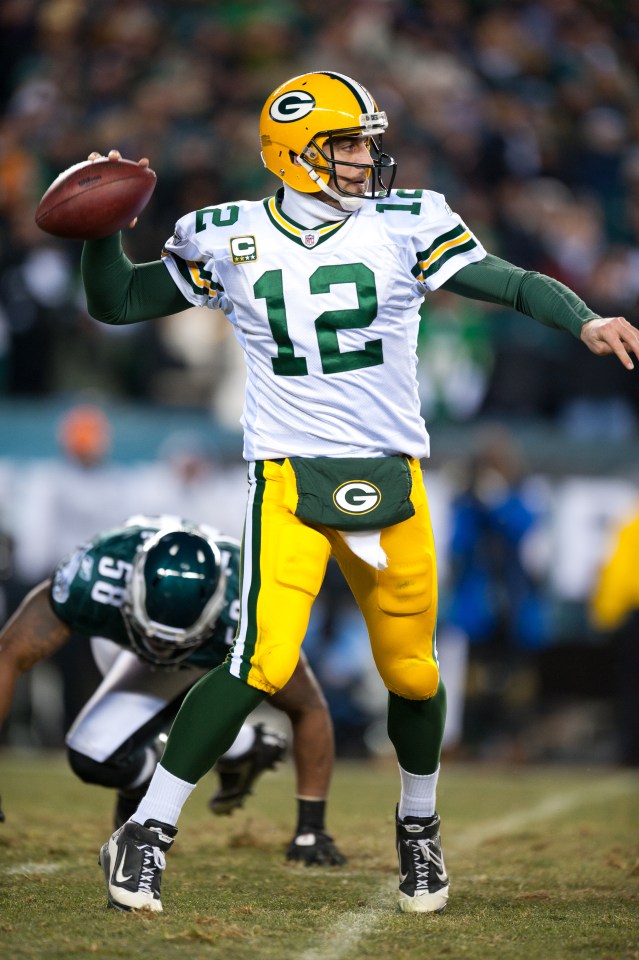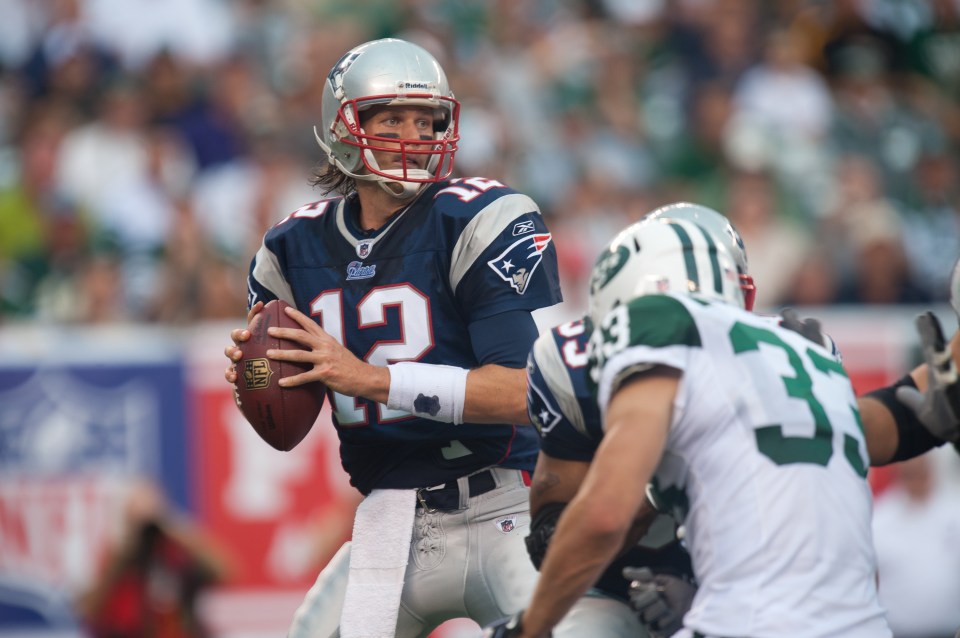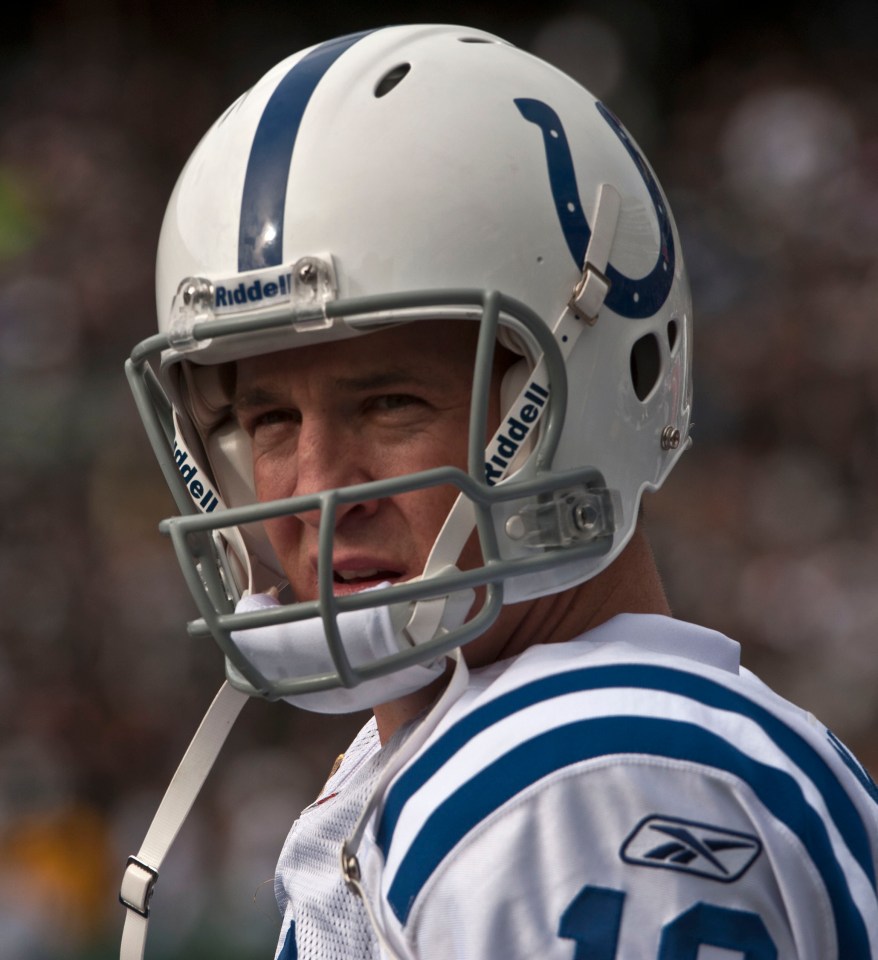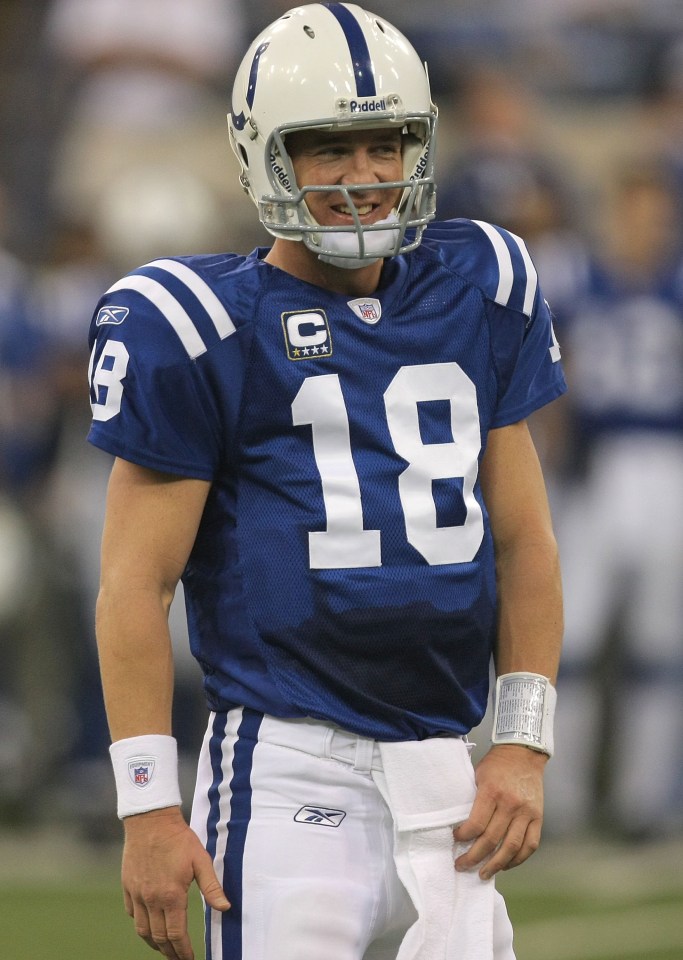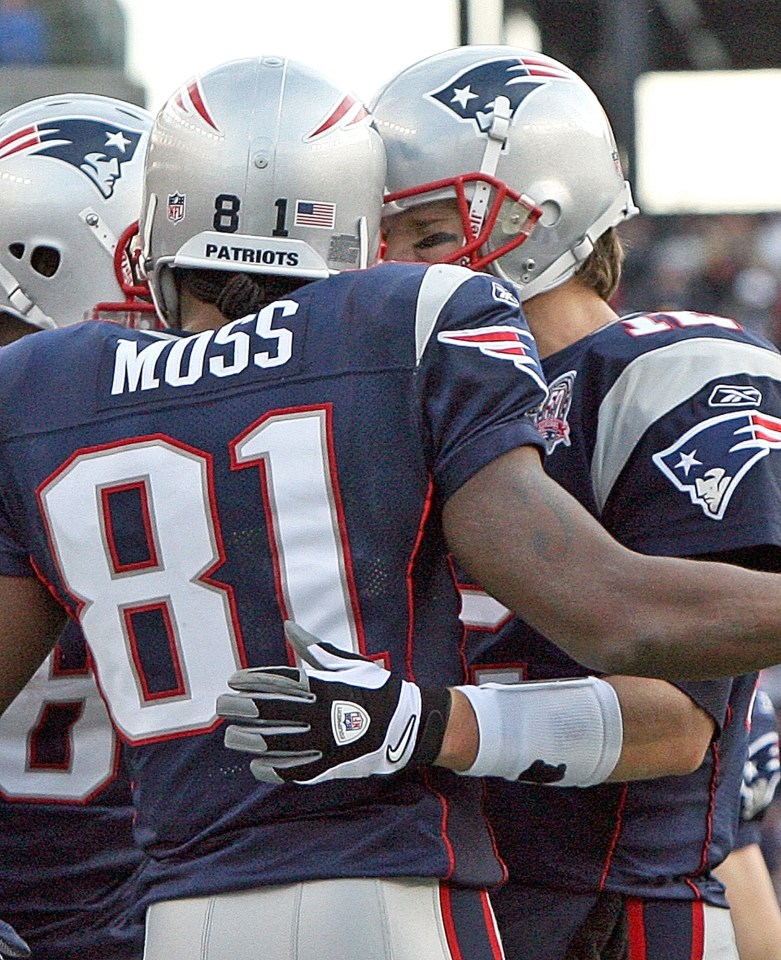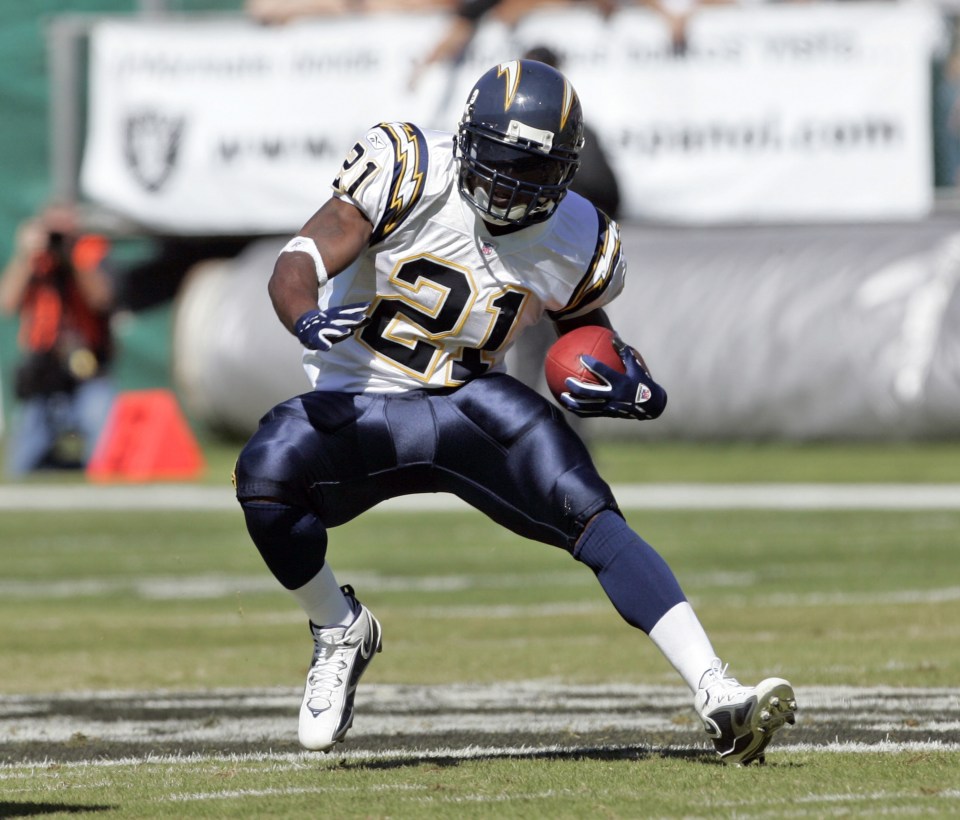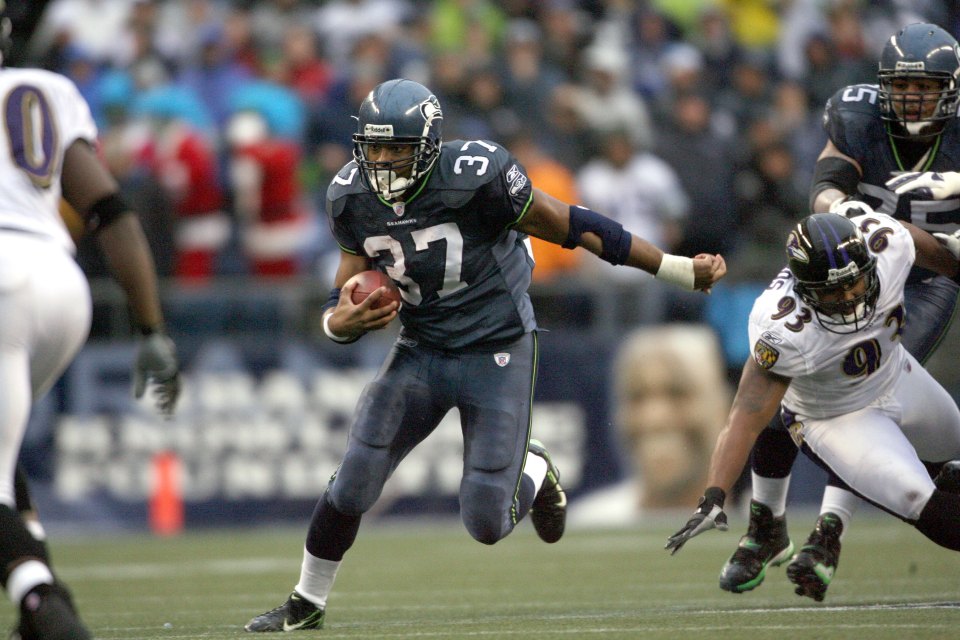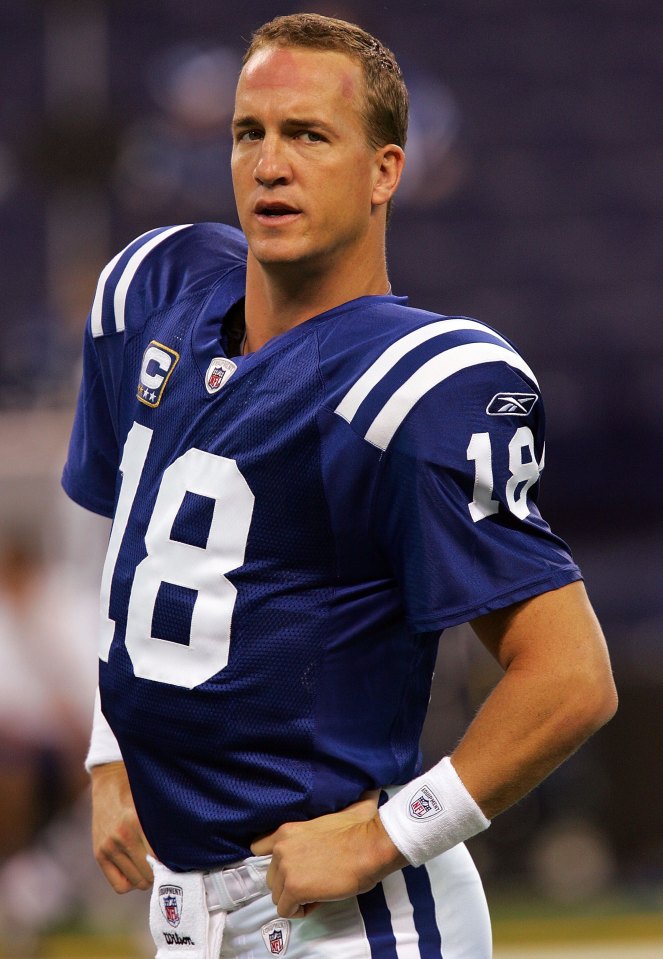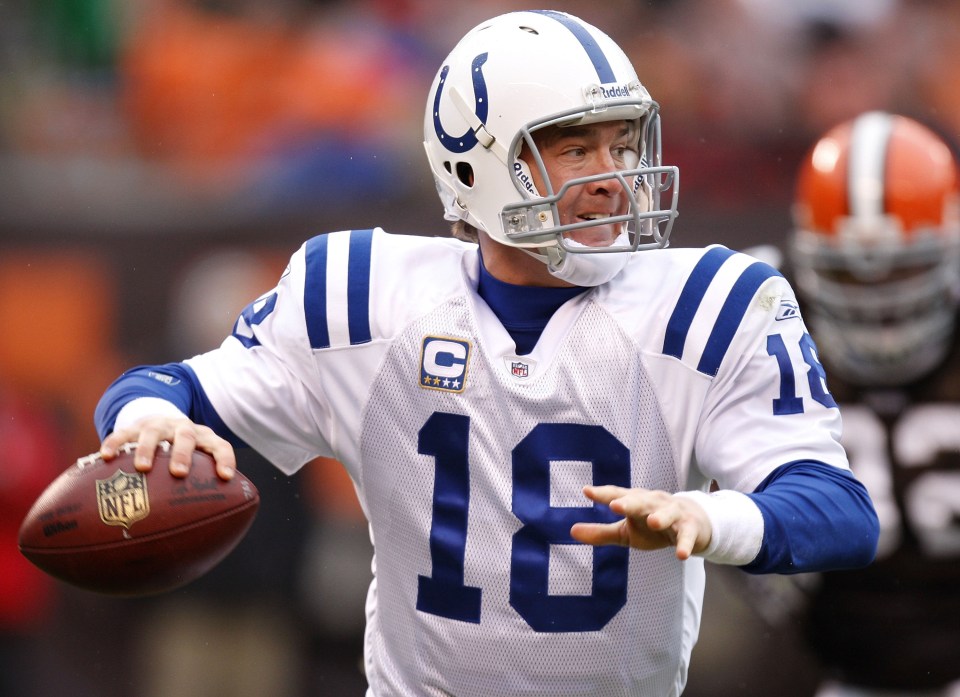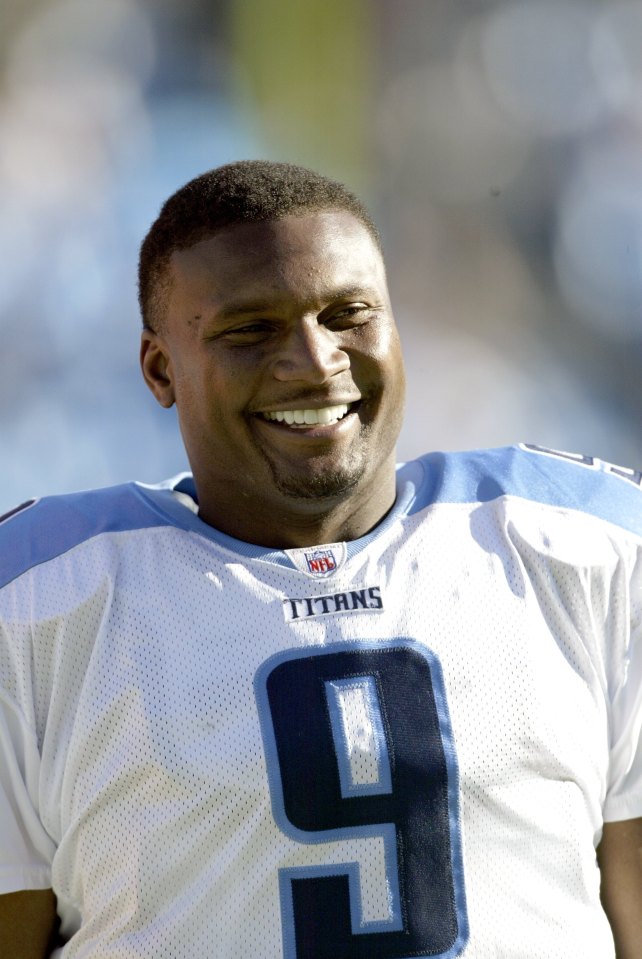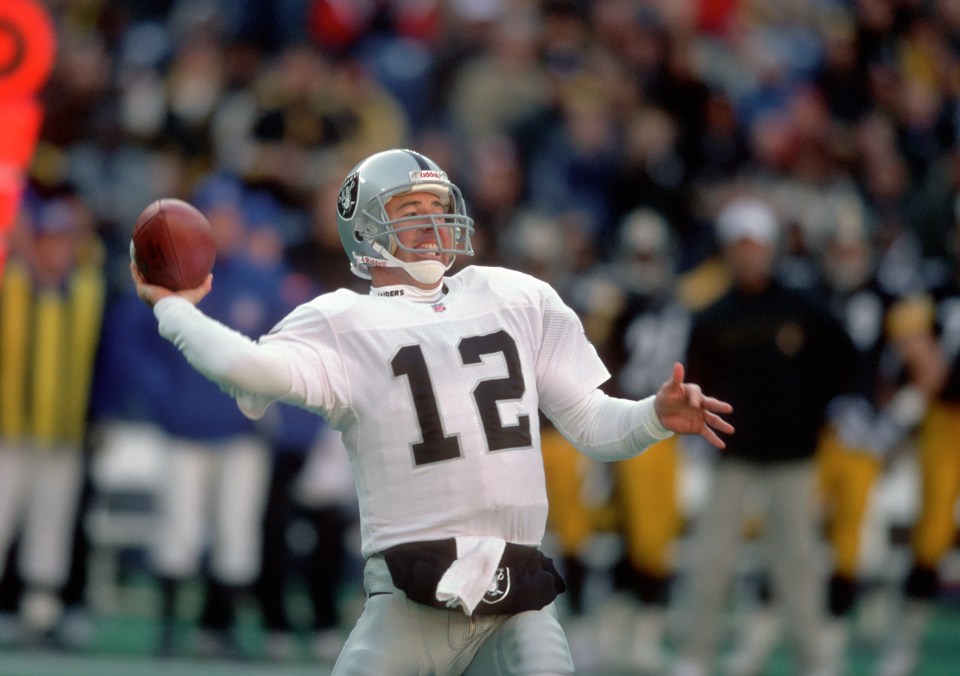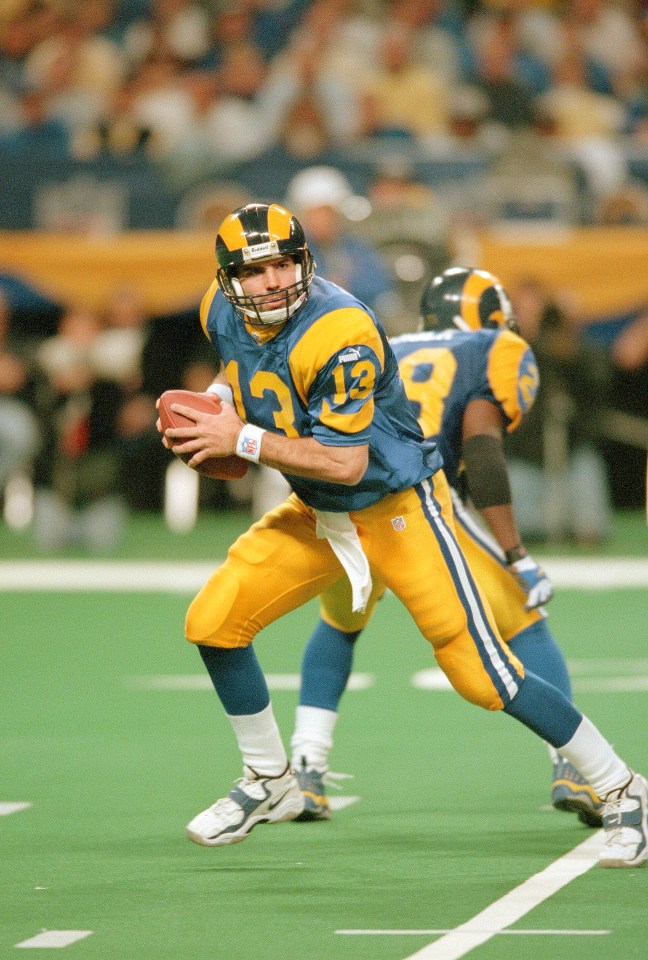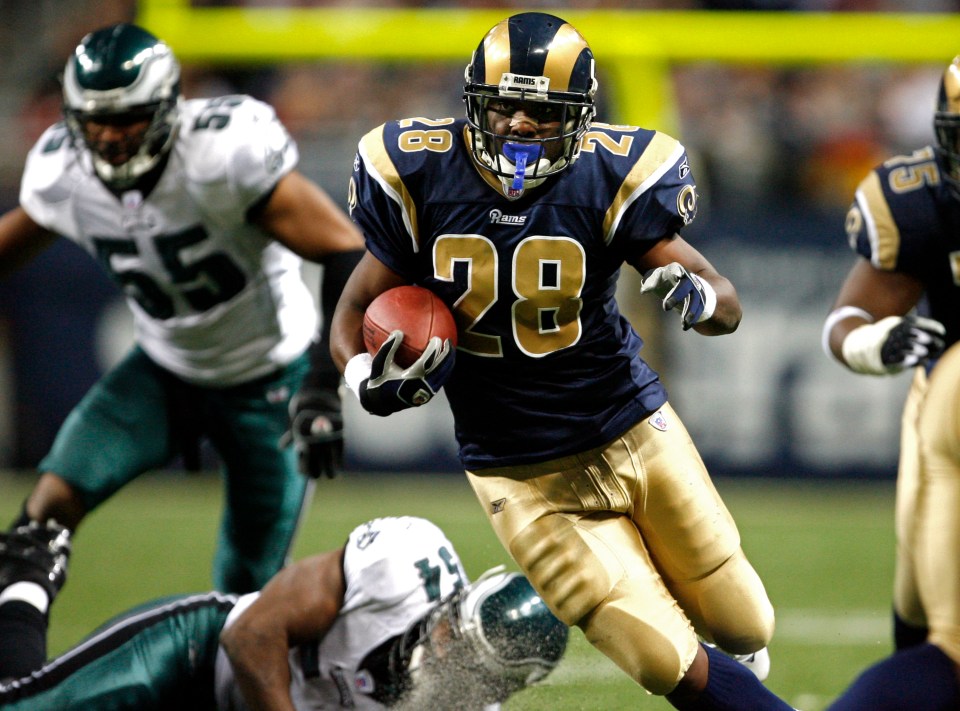The MVP award is handed out to the best player in the NFL during each NFL regular season.
From the likes of Patrick Mahomes, Tom Brady and Peyton Manning to Adrian Peterson and LaDainian Tomlinson, winning the Most Valuable Player award is the highest individual honor in football.
‘It’s a quarterbacks’ league’ is the usual mantra when it comes to Honors Night in Super Bowl week and the fact that the ‘most important position in sports’ has dominated is there for all to see.
As well as Mahomes, a likely contender for the 2024 regular season award, Lamar Jackson is making his early case for the Hall of Fame.
The Ravens dual-threat QB has already won the award twice, and he would join rare company with a third, including Tom Brady and Brett Favre.
Another of those is Aaron Rodgers, not in the MVP conversation in 2024 as the New York Jets flame out, but with four regular season MVPs, only Peyton Manning tops A-Rod.
Manning holds the record with five, winning three during his time with the Indianapolis Cols, and adding two more with the Denver Broncos.
The only other position to claim the award is running back with four rushers winning since the turn of the century.
The Ravens’ Derrick Henry got out to a hot start to put RBs back in the conversation, but it’s Philadelphia Eagles’ free agent pickup Saquon Barkley taking things on in the second half of the season.
Buffalo’s Josh Allen is the frontrunner this season, taking his game to another level in pursuit of the Bills first ever Super Bowl success and his own first ever MVP.
Every NFL MVP winner of the 21st century
2023 – Lamar Jackson, QB Baltimore Ravens
Jackson became the youngest two-time MVP since the merger, at the age of 27.
He led the Baltimore Ravens to the one seed in the AFC, before ultimately falling short in the AFC Championship.
Stats: 13-3 record, 67.2% completion rate, 3,678 passing yards, 24:7 TD-to-INT ratio, 102.7 passer rating
2022 – Patrick Mahomes, QB Kansas City Chiefs
Mahomes took home his second regular season MVP award, while guiding the Kansas City Chiefs to another Super Bowl title and claiming a third big game MVP.
It made him the first player to do both, since Kurt Warner with the St. Louis Rams in 1999.
Stats: 14-3 record, 67.1% completion rate, 5,250 passing yards, 41:12 TD-to-INT ratio, 105.2 passer rating
2021 – Aaron Rodgers, QB Green Bay Packers
Rodgers became just the second player in NFL history to take home four MVP awards.
Unfortunately Rodgers and the Green Bay Packers were upset by the San Francisco 49ers in the divisional round of the postseason.
Stats: 13-4 record, 68.9% completion rate, 4,115 passing yards, 37:4 TD-to-INT ratio, 111.9 passer rating
2020 – Aaron Rodgers, QB Green Bay Packers
Rodgers captured his third MVP award, while falling just short to Tom Brady and the Tampa Bay Buccaneers in the NFC Championship.
Stats: 13-3 record, 70.7% completion rate, 4,229 passing yards, 48:5 TD-to-INT ratio, 121.5 passer rating
2019 – Lamar Jackson, QB Baltimore Ravens
Jackson became the youngest quarterback in NFL history to win MVP at 22 years old, while at the same time leading the NFL’s number one scoring offence in the league.
Jackson and the Ravens were upset in the divisional round by the Tennessee Titans.
Stats: 13-2 record, 66.1% completion rate, 3,127 passing yards, 36:6 TD-to-INT ratio, 113.3 passer rating, 1,206 rushing yards, 7 rushing TDs, 6.9 yards per carry
2018 – Patrick Mahomes, QB Kansas City Chiefs
Mahomes burst on to the scene throwing for 50 touchdown passes in his first season as a starter, while guiding the Chiefs to the AFC Championship game, falling to Tom Brady and the New England Patriots in overtime.
Stats: 12-4 record, 66% completion rate, 5,097 passing yards, 50:12 TD-to-INT ratio, 113.8 passer rating
2017 – Tom Brady, QB New England Patriots
Brady would capture his third MVP award, while falling to Nick Foles and the Philadelphia Eagles in Super Bowl LII.
Stats: 13-3 record, 66.3% completion rate, 4,577 passing yards, 32:8 TD-to-INT ratio, 102.8 passer rating
2016 – Matt Ryan, QB Atlanta Falcons
Matt Ryan is the only Atlanta Falcon in franchise history to win an MVP.
His dominant year led the Falcons to the Super Bowl, where they built a 28-3 lead over Brady and the Patriots… and you know the rest.
Stats: 11-5 record, 69.9% completion rate, 4,944 passing yards, 38:7 TD-to-INT ratio, 117.1 passer rating
2015 – Cam Newton, QB Carolina Panthers
Cam Newton took home the MVP in 2015, while the Carolina Panthers steamrolled everyone, finishing 15-1, before falling just short to Peyton Manning and the Denver Broncos in Super Bowl 50.
Stats: 15-1 record, 59.8% completion rate, 3,837 passing yards, 35:10 TD-to-INT ratio, 99.4 passer rating, 132 carries, 636 rushing yards, 10 rushing touchdowns, 4.8 yards per carry
2014 – Aaron Rodgers, QB Green Bay Packers
Rodgers captured his second MVP award in four seasons, guiding the Packers to another NFC North title and NFC Championship appearance.
Stats: 12-4 record, 65.6% completion rate, 4,381 passing yards, 38:5 TD-to-INT ratio, 112.2 passer rating
2013 – Peyton Manning, QB Denver Broncos
Manning won his fifth MVP award, becoming the first player ever to win it five times.
Manning led one of the greatest offenses in NFL history in his second season with the Broncos, falling short in the Super Bowl to the Seattle Seahawks and their Legion of Boom.
Stats: 14-1 record, 68.3% completion rate, 4,643 passing yards, 45:6 TD-to-INT ratio, 122.5 passer rating
2012 – Adrian Peterson, RB Minnesota Vikings
The last non-quarterback to win the award, Adrian Peterson rushed for over 2,000 yards, falling just nine yards shy of surpassing Eric Dickerson’s all-time rushing yards record in a single season (2,105).
Stats: 348 carries, 2,097 rushing yards, 12 rushing TDs, 6.0 yards per carry, 131.1 rushing yards per game
2011 – Aaron Rodgers, QB Green Bay Packers
Rodgers won his first MVP award, a year after winning the Super Bowl and Super Bowl MVP.
It would be the first of four MVP awards for Rodgers.
Stats: 14-1 record, 68.3% completion rate, 4,643 passing yards, 45:6 TD-to-INT ratio, 122.5 passer rating
2010 – Tom Brady, QB New England Patriots
Brady once again led a dynamic New England offence, en route to his second career MVP, before being upset by Rex Ryan, Mark Sanchez and the New York Jets in the divisional round.
Stats: 14-2 record, 65.9% completion rate, 3,900 passing yards, 36:4 TD-to-INT ratio, 111.0 passer rating
2009 – Peyton Manning, QB Indianapolis Colts
Manning once again won MVP, his fourth overall, becoming the first player to do so, before Rodgers joined him a decade-plus later.
Manning and the Colts felt to Drew Brees and the New Orleans Saints in Super Bowl XLIV.
Stats: 14-2 record, 68% completion rate, 4,500 passing yards, 33:16 TD-to-INT ratio, 99.9 passer rating
2008 – Peyton Manning, QB Indianapolis Colts
Manning would win his third MVP award, leading one of the best offences in the league, before falling to the San Diego Chargers in overtime of the wild card round.
Stats: 12-4 record, 66.8% completion rate, 4,002 passing yards, 27:12 TD-to-INT ratio, 95.0 passer rating
2007 – Tom Brady, QB New England Patriots
Brady had one of the greatest seasons in NFL history, regardless of position, as he took home his first MVP award, while leading New England to a 16-0 regular season record.
Brady and the Patriots quest for perfection would end in the Super Bowl at the hands of Eli Manning and the New York Giants.
Stats: 16-0 record, 68.9% completion rate, 4,806 passing yards, 50:8 TD-to-INT ratio, 117.2 passer rating
2006 – LaDainian Tomlinson, RB San Diego Chargers
LaDainian Tomlinson set an NFL record during his MVP campaign with 28 rushing touchdowns. A record that still stand to this day.
Stats: 348 carries, 1,815 rushing yards, 28 rushing TDs, 5.2 yards per carry, 113.4 rushing yards per game, 58 receptions, 508 receiving yards, 3 receiving touchdowns
2005 – Shaun Alexander, RB Seattle Seahawks
Shaun Alexander’s 2005 MVP season was one for the ages.
He led the Seahawks to Super Bowl XL, falling just short to the Pittsburgh Steelers.
Stats: 370 carries, 1,880 rushing yards, 27 rushing TDs, 5.1 yards per carry, 117.5 rushing yards per game, 15 receptions, 78 receiving yards, 1 receiving touchdown
2004 – Peyton Manning, QB Indianapolis Colts
Manning won his second consecutive MVP, leading a dynamic aerial attack, once again flanked by Hall of Famer Marvin Harrison, and All-Pro Reggie Wayne.
The trio were beaten by Brady and New England in the divisional round.
Stats: 12-4 record, 67.6% completion rate, 4,557 passing yards, 49:10 TD-to-INT ratio, 121.1 passer rating
2003 – Peyton Manning, QB Indianapolis Colts
Manning and Steve McNair became the first co-MVPs since Barry Sanders and Brett Favre split the award in 1997.
Stats: 12-4 record, 67% completion rate, 4,267 passing yards, 29:10 TD-to-INT ratio, 99.0 passer rating
2003 – Steve McNair, QB Tennessee Titans
McNair, along with Manning, split the MVP, after McNair had guided the Tennessee Titans to one of their best seasons in franchise history.
Stats: 12-4 record, 62.5% completion rate, 3,215 passing yards, 24:7 TD-to-INT ratio, 100.4 passer rating
2002- Rich Gannon, QB Oakland Raiders
The last time the Raiders won a playoff game, quarterback Rich Gannon was at the helm winning and MVP.
Gannon led the Raiders to the Super Bowl in his MVP campaign, before Jon Gruden and the Tampa Bay Buccaneers throttled them in the big game.
Stats: 11-5 record, 67.6% completion rate, 4,689 passing yards, 26:10 TD-to-INT ratio, 97.3 passer rating
2001 – Kurt Warner, QB St. Louis Rams
Quarterback of one of the greatest offences of all time, ‘The Greatest Show on Turf,’ Warner slung it all over the field, and was the second member of the offence to win the MVP award (see below).
Unfortunately him and the Rams were part of one of the biggest upsets in Super Bowl history, as Brady defeated Warner for the first of seven rings.
Stats: 14-2 record, 68.7% completion rate, 4,830 passing yards, 36:22 TD-to-INT ratio, 101.4 passer rating
2000 – Marshall Faulk, RB St. Louis Rams
Along with Warner, Marshall Faulk helped lead ‘The Greatest Show on Turf,’ as not only a running back, but also a receiver, guiding the Rams to two Super Bowl appearances and one victory.
Faulk’s 2000 season was one of the greatest seasons ever for a running back.
Stats: 253 carries, 1,359 rushing yards, 18 rushing TDs, 5.4 yards per carry, 97.1 rushing yards per game, 81 receptions, 830 receiving yards, 8 receiving touchdowns
talkSPORT is your home of the NFL on UK radio, join us for live coverage throughout the regular season and playoffs and stay up to date with the latest via our dedicated YouTube NFL channel
